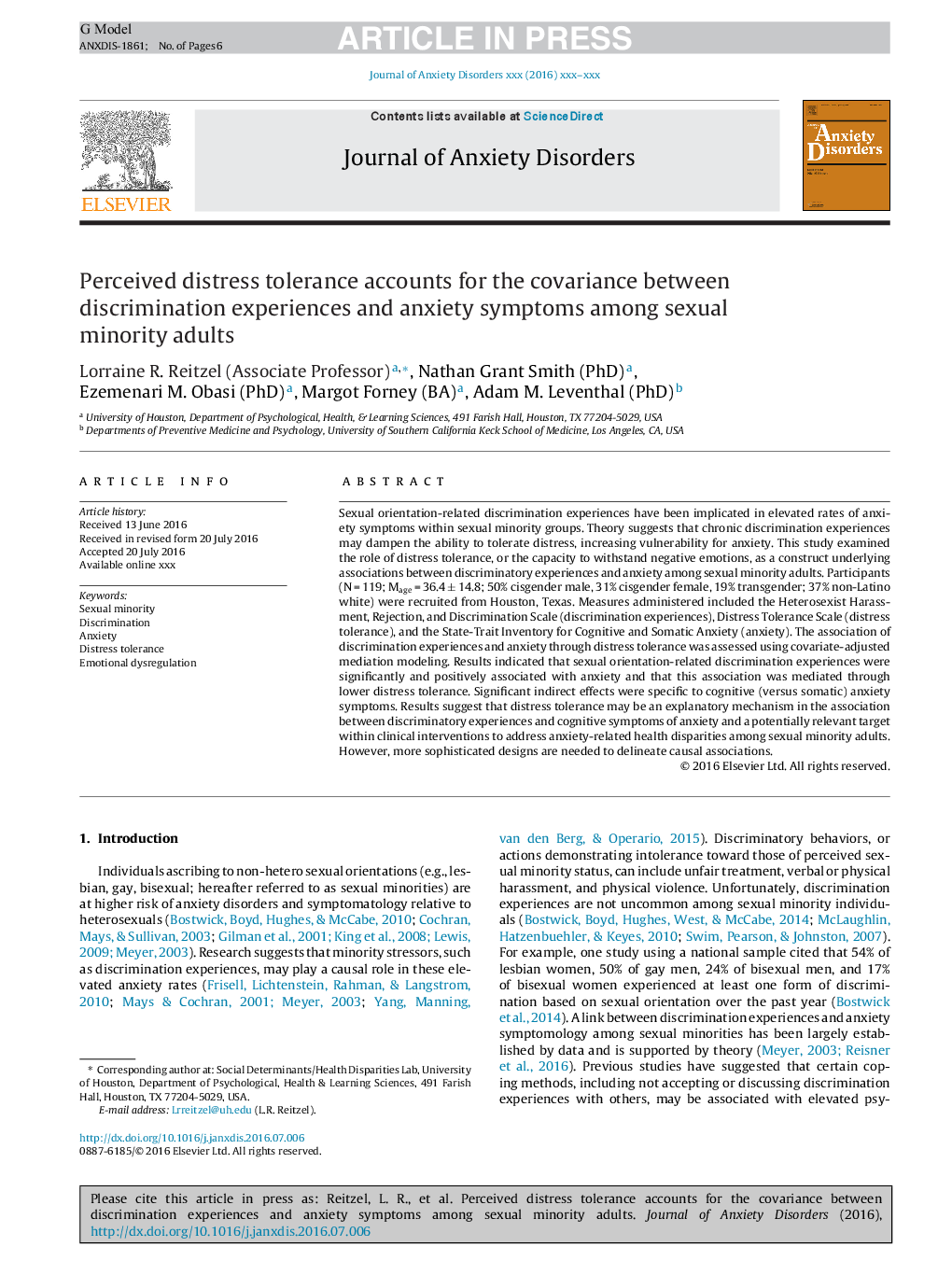ترجمه فارسی عنوان مقاله
تحمل پذیری درک شده برای کوواریانس بین تجارب تبعیض و علائم اضطراب در میان بزرگسالان اقلیت جنسی است
عنوان انگلیسی
Perceived distress tolerance accounts for the covariance between discrimination experiences and anxiety symptoms among sexual minority adults
| کد مقاله | سال انتشار | تعداد صفحات مقاله انگلیسی |
|---|---|---|
| 134970 | 2017 | 6 صفحه PDF |
منبع

Publisher : Elsevier - Science Direct (الزویر - ساینس دایرکت)
Journal : Journal of Anxiety Disorders, Volume 48, May 2017, Pages 22-27
ترجمه کلمات کلیدی
اقلیت جنسی، تبعیض اضطراب، تحمل دوری، اختلال هیجانی،
کلمات کلیدی انگلیسی
Sexual minority; Discrimination; Anxiety; Distress tolerance; Emotional dysregulation;

